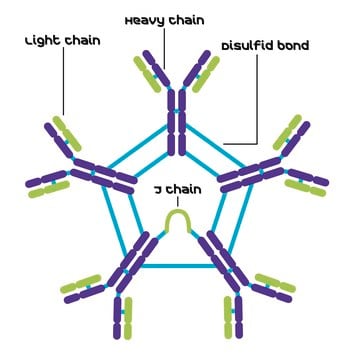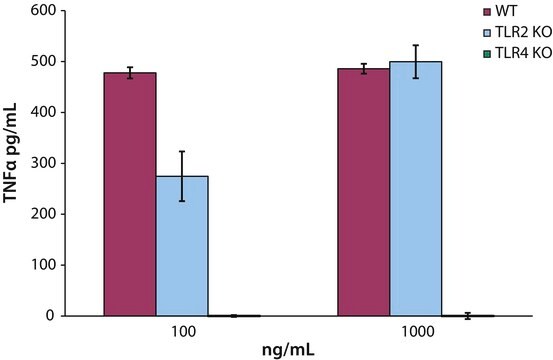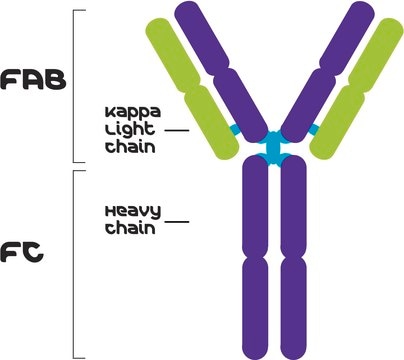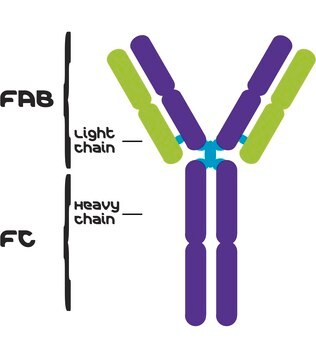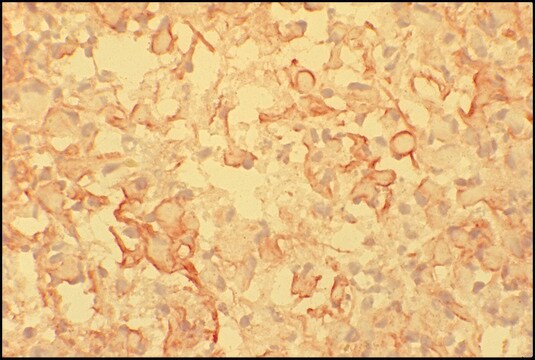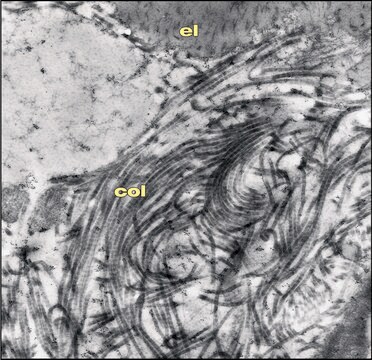おすすめの製品
由来生物
mouse
品質水準
結合体
unconjugated
抗体製品の状態
purified immunoglobulin
クローン
MOPC 104E, monoclonal
形状
buffered aqueous solution
濃度
200 μg/mL
テクニック
flow cytometry: suitable
アイソタイプ
IgMλ
輸送温度
wet ice
保管温度
2-8°C
ターゲットの翻訳後修飾
unmodified
詳細
IgM is a glycoprotein antibody that regulates humoral immune responses. Mouse IgM is involved in modulating B cell memory . This antibody isotype has also been implicated in the development of autoimmune responses associated with the pathogenesis of type 1 diabetes in mice . IgM isotype control antibody is specific for anti-mouse whole serum and anti-mouse IgM. The product does not react with antisera to mouse IgA, IgG1, IgG2a, IgG2b, and IgG3.
Isotype controls are non-reactive immunoglobulins of the same isotype as the primary antibody being used in an application. It is recommended that a non-reactive immunoglobulin of the same isotype and concentration be included as a negative control for each monoclonal antibody reagent used in flow cytometry or other immunoassays.
The purified IgM Isotype Control clone MOPC 104E preparation is non-reactive with antisera to mouse IgA, IgG1, IgG2a, IgG2b, and IgG3. When evaluated in flow cytometry, the IgM Isotype Control did not stain human peripheral blood lymphocytes (PBLs). A FITC Goat anti-Mouse IgM (μ-chain specific), Affinity Isolated Antibody (Product No. F 9259) along with 1 μg of the product was incubated with human PBLs and then evaluated by flow cytometry.
アプリケーション
IgM Isotype Control clone MOPC 104E is recommended as a negative control in flow cytometry. Working Concentration: equal concentrations of isotype control and primary antibody are recommended for use in flow cytometry. Equal concentrations of isotype control and primary antibody are recommended for use in flow cytometry.
IgM Isotype Control from murine myeloma has been used:
- in chromatin immunoprecipitation (ChIP) assay
- LABScreen assays
- immunofluorescent staining
IgM isotype control antibodies are suitable for use in immunohistochemistry .
原理
標的細胞群に対する試薬の非特異的結合を測定し、マウスCD抗原に対するモノクロ-ナル抗体の染色の特異性を確認する必要があります。イムノアッセイに用いるモノクロ-ナル抗体に対する陰性対照として、濃度・アイソタイプの適合したマウス骨髄腫イムノグロブリンを用いる方法があります。
Sigmaのマウスアイソタイプコントロ-ルは、Sigmaの精製済み抗CD抗原モノクロ-ナル抗体(標識・未標識)の濃度と合っています。DUAL-TAGコントロ-ルは、各複合体をそれぞれ100μg含みます。
Sigmaのマウスアイソタイプコントロ-ルは、Sigmaの精製済み抗CD抗原モノクロ-ナル抗体(標識・未標識)の濃度と合っています。DUAL-TAGコントロ-ルは、各複合体をそれぞれ100μg含みます。
物理的形状
0.01M PBS溶液 (pH 7.4, 1%BSA, 15mMアジ化ナトリウム含有)
免責事項
Unless otherwise stated in our catalog or other company documentation accompanying the product(s), our products are intended for research use only and are not to be used for any other purpose, which includes but is not limited to, unauthorized commercial uses, in vitro diagnostic uses, ex vivo or in vivo therapeutic uses or any type of consumption or application to humans or animals.
保管分類コード
12 - Non Combustible Liquids
WGK
WGK 1
引火点(°F)
Not applicable
引火点(℃)
Not applicable
適用法令
試験研究用途を考慮した関連法令を主に挙げております。化学物質以外については、一部の情報のみ提供しています。 製品を安全かつ合法的に使用することは、使用者の義務です。最新情報により修正される場合があります。WEBの反映には時間を要することがあるため、適宜SDSをご参照ください。
Jan Code
M5909-VAR:
M5909-BULK:
M5909-.1MG:
試験成績書(COA)
製品のロット番号・バッチ番号を入力して、試験成績書(COA) を検索できます。ロット番号・バッチ番号は、製品ラベルに「Lot」または「Batch」に続いて記載されています。
この製品を見ている人はこちらもチェック
Graham Haddock et al.
Microbiology (Reading, England), 156(Pt 10), 3079-3084 (2010-07-10)
Human small and large intestinal tissue was used to study the interaction of Campylobacter jejuni with its target tissue. The strain used for the study was 81-176 (+pVir). Tissue was processed for scanning and transmission electron microscopy, and by immunohistochemistry
Histone H3 lysine 36 tri-methylation is established over the Xist promoter by antisense Tsix transcription and contributes to repressing Xist expression
Ohhata T, et al.
Molecular and Cellular Biology, MCB-00561 (2015)
Histone H3 lysine 36 tri-methylation is established over the Xist promoter by antisense Tsix transcription and contributes to repressing Xist expression
Ohhata T, et al.
Molecular and cellular biology, MCB-00561 (2015)
HLA antibody identification with single antigen beads compared to conventional methods
El-Awar N, et al.
Human immunology, 66(9), 989-997 (2005)
Juliana Rizzo et al.
mSphere, 5(4) (2020-08-21)
Extracellular vesicles (EVs) are membranous compartments produced by yeast and mycelial forms of several fungal species. One of the difficulties in perceiving the role of EVs during the fungal life, and particularly in cell wall biogenesis, is caused by the
ライフサイエンス、有機合成、材料科学、クロマトグラフィー、分析など、あらゆる分野の研究に経験のあるメンバーがおります。.
製品に関するお問い合わせはこちら(テクニカルサービス)